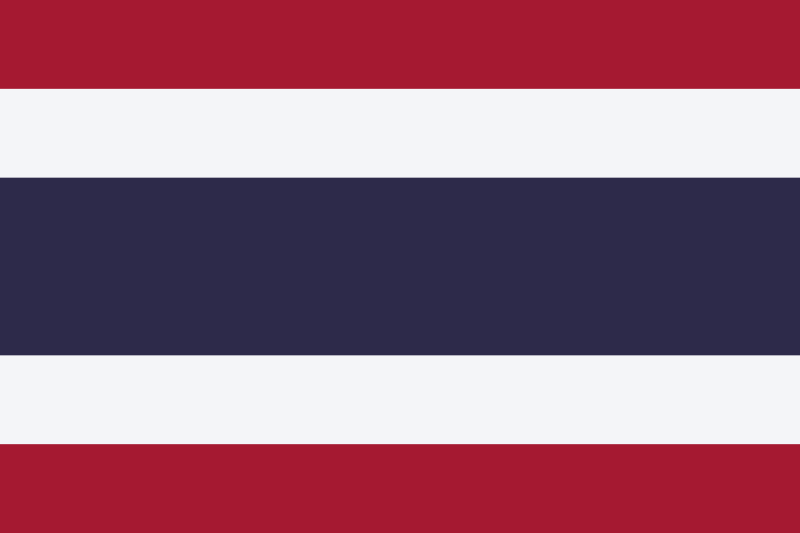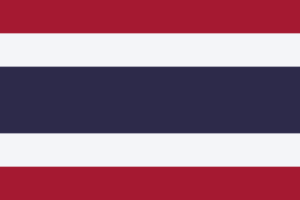Thailand’s solar water heater subsidy programme, which started in 2008, will continue until 2021. The subsidy will gradually decrease from currently 25% of the investment costs to 15% in 2017. The programme is part of Thailand’s revised Alternative Energy Development Plan (AEDP), which was presented by Kulwaree Buranasajjawaraporn, Director of the solar energy section’s Innovation Group at the Department of Alternative Energy Development and Efficiency (DEDE), during the Thai-German Technology Conference in Bangkok in October 2013. The table shows the annual target figure and the results of the DEDE subsidy scheme and was taken from the presentation of Mrs Buranasajjawaraporn.
According to the director, Thailand’s aim is to cover 25% of the country’s energy demand by renewable energies until 2021 – including 100 ktoe (kilo tonnes of oil equivalent) of heat from solar thermal collectors.
The DEDE programme is only available for commercial hybrid systems, which combine a minimum of 40 m² of collector area per project with the use of waste heat from air conditioners, boilers, etc. (see table below). In 2011 and 2012, the government subsidised a total of
21,034 m² of collector area. The budget in 2013 was extended to cover 25,000 m². DEDE, however, registered only 8,000 m² of newly installed collector area until October 2013.
“There were no more installed square meters till the end of the year, because the yearly budget for the programme ends in October,” Chavala Tangyopuwadol, Chairman of Thailand’s Solar Thermal Association and Managing Director of Forbest, one of the country’s distributors of hot water systems, explains. “The reason for last year’s small number was a lack of interest on the part of investors. Even so, the solar thermal system suppliers were busy on 40 projects for government hospitals in provincial areas.”
“I don’t believe that the low numbers were a direct result of the current turmoil in Thailand, but that the PV programme, which was announced in June and for which investors could obtain licenses beginning in October 2013, may have interfered with the demand for solar thermal,” Thomas Chrometzka, Director of Renewable Energy at the GIZ Thailand, explains. “I see the usual suspect at work here: an attractive feed-in tariff makes the PV investment financially interesting for anyone, whereas a solar thermal plant requires thorough analysis, planning, and installation and, ultimately, maintenance. Many companies which offer solar thermal in Thailand also sell photovoltaic systems.”
“The Solar Water Heater Programme still needs qualified and experienced designers and installers to make the programme successful in the long term,” Buranasajjawaraporn stated in her presentation. “The best and most energy-efficient design and an apt installation of the solar hot water system will result in optimal system performance.”
More information:
Links:
Thailand’s solar water heater subsidy programme in the commercial segment ran from 2008 to the end of 2014. The programme administrators from the Department of Alternative Energy Development and Efficiency (DEDE) argued with the low oil price and will decide about a restart of the programme mid 2016. The following table showst the programme’s regulation from 2014.
| Country/region |
Thailand |
| Name of programme |
Government subsidy programme for 2014 |
| Type of incentive |
Initial investment subsidy |
| Eligible technologies |
Flat plate and vacuum collectors |
| Applicable sectors |
Commercial customers |
| Amount |
Maximum of 2,800 Thai Baht (THB)/m2 depending on 4 main components:
1. Solar collector: 1,596 THB/m2 with solar yield above 500 kWh/m2 per year
2. Storage tank: 504 THB/m2 for stainless steel tank
3. Hot water piping: 170-280 THB/m2 for copper stainless PPR-PN25
4. Hot water pump, control system, data recording system, etc: 420 THB/m2
Note: Collector area calculated based on aperture area (flat plate) or gross area (vacuum tube) |
| } |
Hybrid system (solar collector and waste heat from air conditioner, boiler, etc) |
| Requirements for installation |
20 m2 minimum per project
Payback within 5 years
New projects
No defined maximum size per project |
| Finance provider |
Department of Alternative Energy Development and Efficiency (DEDE), Thailand
http://www.dede.go.th
Program is limited to 15,000 m2 in 2015 |
| Total funds |
THB 42 million in 2015 |
| Funding source |
Government |
| Effective date |
January 2015 was the official start of phase VI of the programme, which has been running since 15 august 2015 |
| Expiration date |
The programme is extended on an annual basis and suppose to run until 2021 |
| Website |
http://www.dede.go.th |
| Last review of this tabloid |
June 2015 |
| Contact |
Mr Virach Maneekhao
Email: virach_m@dede.go.th
Phone: +66/2 223 0021 ext. 1481
Fax: +66/2 221 7841 |



